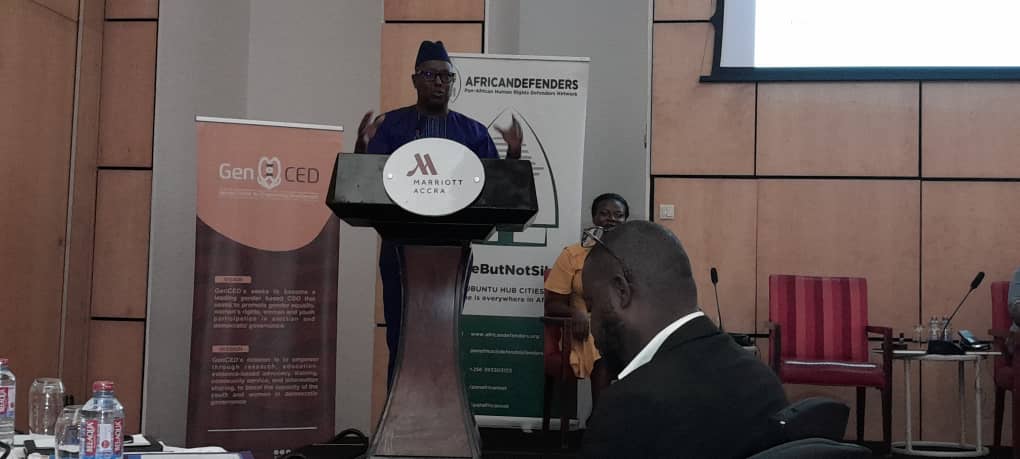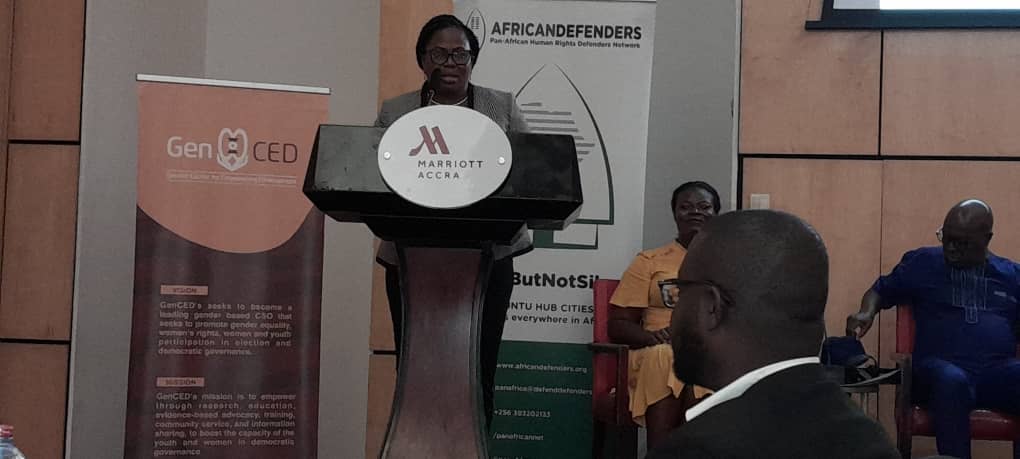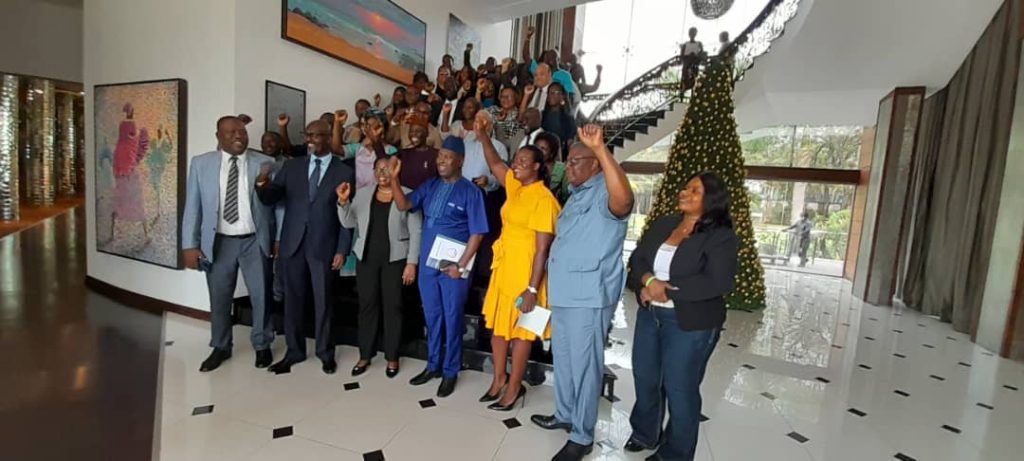By Eunice Hilda A. Mensah
Accra, Dec.07, GNA – AfricanDefenders in partnership with the Gender Centre for Empowering Development and DefendDefenders have called on Human Rights Institutions across the continent to expand their mandate and roles to defend ‘Human Rights Defenders’ (HRDs).
The institutions are to advocate legally or through the law to protect persons or groups that defend human rights.
Such rights include freedom of opinion and expression, right to join association, life and liberty, freedom from slavery and torture, right to work and education, and right to own properties.
Human Rights Defenders are individuals who champion the rights of others to exercise their rights and speak up where the State violates or fails to protect rights.
Mr Hassan Shire, the Executive Director, DefendDefenders/AfricanDefenders, who made the call at a two-day consultative meeting between National Human Rights Institutions (NHRIs) and Civil Society Organisations (CSOs) in Africa in Accra, asked NHRIs to also potentially define measures that created an enabling environment for them.
The theme for the meeting is, “Fostering Collaboration between NHRIs and CSOs in Africa.”
Mr Shire said HRDs networks were identified as a powerful and positive tool that needed a more enabling environment to pursue their legitimate work.
As AfricanDefenders was formed to build networks of HRDs, he said they would ensure that best practices, cross-pollinate protection expertise, track continental trends, and deal with trans-regional protection issues, emergency protection and relocations of HRDs were shared when necessary.
Madam Mercy Larbi, the Deputy Commissioner, Commission on Human Rights and Administrative Justice (CHRAJ), said NHRIs, including CHRAJ were mandated as state institutions to promote and protect fundamental rights of all persons in their respective countries as a fundamental part of the human rights system in Africa.
Among their roles are contributing immensely to the effectiveness, relevance and credibility of the promotion and protection of human rights, she said.
This is through increasing public knowledge and awareness of human rights, monitoring, and investigation of human rights abuses and consistently advocating for government to respect ratified international, regional, and national human rights instruments, she explained.
Madam Larbi said HRDs were often subjected to harassment, intimidation and violence perpetrated by both State and non-State actors with competing interests to the rights defended by the HRDs.
They were also often subjected to arbitrary arrests and detentions, politically motivated trials, and other violations of their rights, including the right to privacy, she said.
“Some have even been subjected to enforced disappearances and extrajudicial killings. Women Human Rights Defenders face the same challenges, but also experience sexual, religious, cultural, and other attacks based on their gender,” she added.

The Deputy Commissioner said it was, therefore, prudent to foster dialogue between NHRIs and CSOs to develop concrete and practical measures for NHRIs to contribute to the protection of HRDs and enabling environment that allowed civil society to thrive.
“NHRIs are supposed to be bridge-builders between the CSOs and the state, and as such the two ought to collaborate on a mutual beneficial partnership,” she said.
Mr Gilbert Sebihogo, Executive Director, Network of African National Human Rights Institutions (NANHRI), said NANHRI released a documentation report on the state of human rights defenders in Africa, based on nine countries from the five sub-regions of the continent.
According to the report, he said, indeed the rise in cases of violations of human rights defenders was not an occurrence, but systemic attacks.
“If it were not systemic, how do you explain extrajudicial killings from the security agencies who are conferred the duty to protect human rights? How do you explain the use of judicial system to intimidate and punish human rights defenders, yet judicial officers are themselves human rights defenders?
“How do you explain propulsion and adoption of oppressive and repugnant laws by attorney generals and legislature, yet their main role is to advise and support the State in fulfilling its human rights obligation?

“And how do you explain that CSOs and NHRIs have a common mandate of human rights promotion and protection, yet they work in silos and at times, suspicion?” he asked.
Mr Sebihogo expressed optimism that the meeting helped to identify the gaps and barriers, to agree on the way forward to curb the situation.

“We also meet here to discuss on how to strategically engage State agencies and turn them into allies and collaborators in the protection of the rights of HRDs,” he said.
GNA